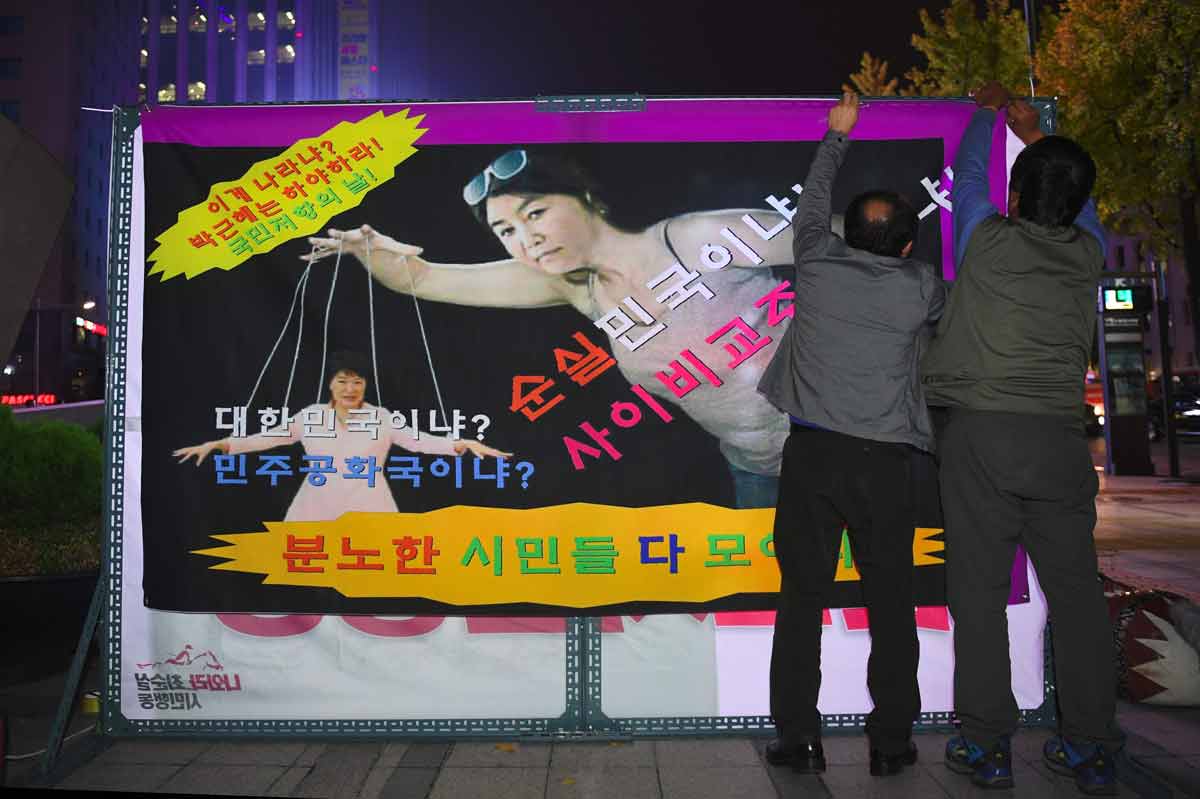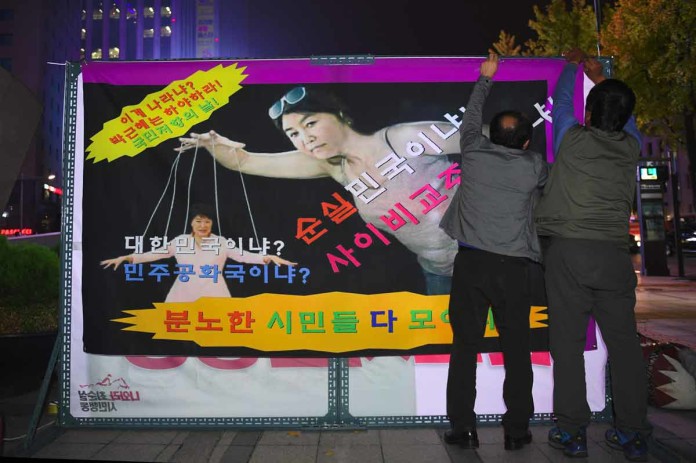South Korean President Park Geun-Hye is facing calls to resign over allegations she allowed a close personal friend to meddle in state affairs.
The woman at the heart of the scandal is an elusive figure with no government post or security clearance but a reportedly Rasputin-like grip on the president’s trust and affections.
Here are five key questions about an ongoing and sometimes bizarre scandal that has gripped the country and severely undermined Park’s public stature and ability to govern.
Choi, 60, is daughter of the late Choi Tae-Min, a shadowy religious figure who married six times, had multiple pseudonyms and set up a cult-like group known as the Church of Eternal Life.
Choi Tae-Min befriended a traumatised Park after the 1974 assassination of her mother, who he said had appeared in his dreams asking for his help.
Choi became a key mentor for the young Park, a role that angered a number of key aides to her father, the country’s then military ruler Park Chung-Hee.
Park was assassinated in 1979 by his intelligence chief who cited Park’s failure to step between Choi and his daughter as one reason for his actions.
Park Geun-Hye also formed a close bond with Choi’s daughter Choi Soon-Sil that endured after Choi’s death in 1994.
Choi Soon-Sil’s ex-husband served as a top aide for Park until her presidential victory in 2012.
Choi is officially being investigated for using her ties with Park to coerce companies like Samsung to make large donations to two non-profit foundations she set up – allegedly for her personal benefit.
But the more damaging side to the scandal is that Choi, who has never held any official position, seemingly exerted enormous influence over the president’s political policy-making.
Files obtained from Choi’s personal computer by broadcaster JTBC TV suggest Choi edited some of Park’s key speeches and received confidential documents, including files related to ties with Japan and North Korea.
Some reports have suggested Choi had her own coterie of aides who advised the president on appointments, policy issues and even on her wardrobe.
The scandal has seen Park’s approval ratings plummet to record lows, even after she made a public apology for “causing concern to the people.” It has played into long-standing criticism of Park’s aloof decision-making process and her perceived tendency to ignore expert advice and surround herself with loyalists.
And the quasi-religious mystique surrounding Choi has been especially troubling.
Lawmakers, including some in Park’s own party, have voiced concern that the president is under the spell of a “religious cult,” with Choi acting as some sort of shaman after taking on her father’s mantle as a Rasputin-like advisor.
The head of the main opposition Minjoo Party said it was like discovering you were being ruled by a “terrifying theocracy.” There was also widespread anger over accusations that Choi’s daughter had received preferential treatment as a student at one of the country’s top universities.
Park, who has just over a year left in office, has apologised but vowed to stay put.
For the moment, the main opposition party has pushed for a special probe but stopped short of calling for Park’s impeachment, perhaps, analysts suggest, for fear of triggering a backlash.
But the scandal has severely undermined Park’s ability to govern effectively at a time of slowing economic growth, rising unemployment and tensions with North Korea.
A recent poll showed 70 per cent of voters wanted the president to resign or be impeached.
Choi is currently holed up in Germany, having left South Korea in early September as the first reports of her influence-peddling emerged.
In a newspaper interview, Choi denied any wrongdoing, saying she had only helped Park “out of good faith.” Choi’s lawyer says she is well aware of the “gravity” of the situation and is willing to return home to be questioned and punished “if she did anything wrong.”






